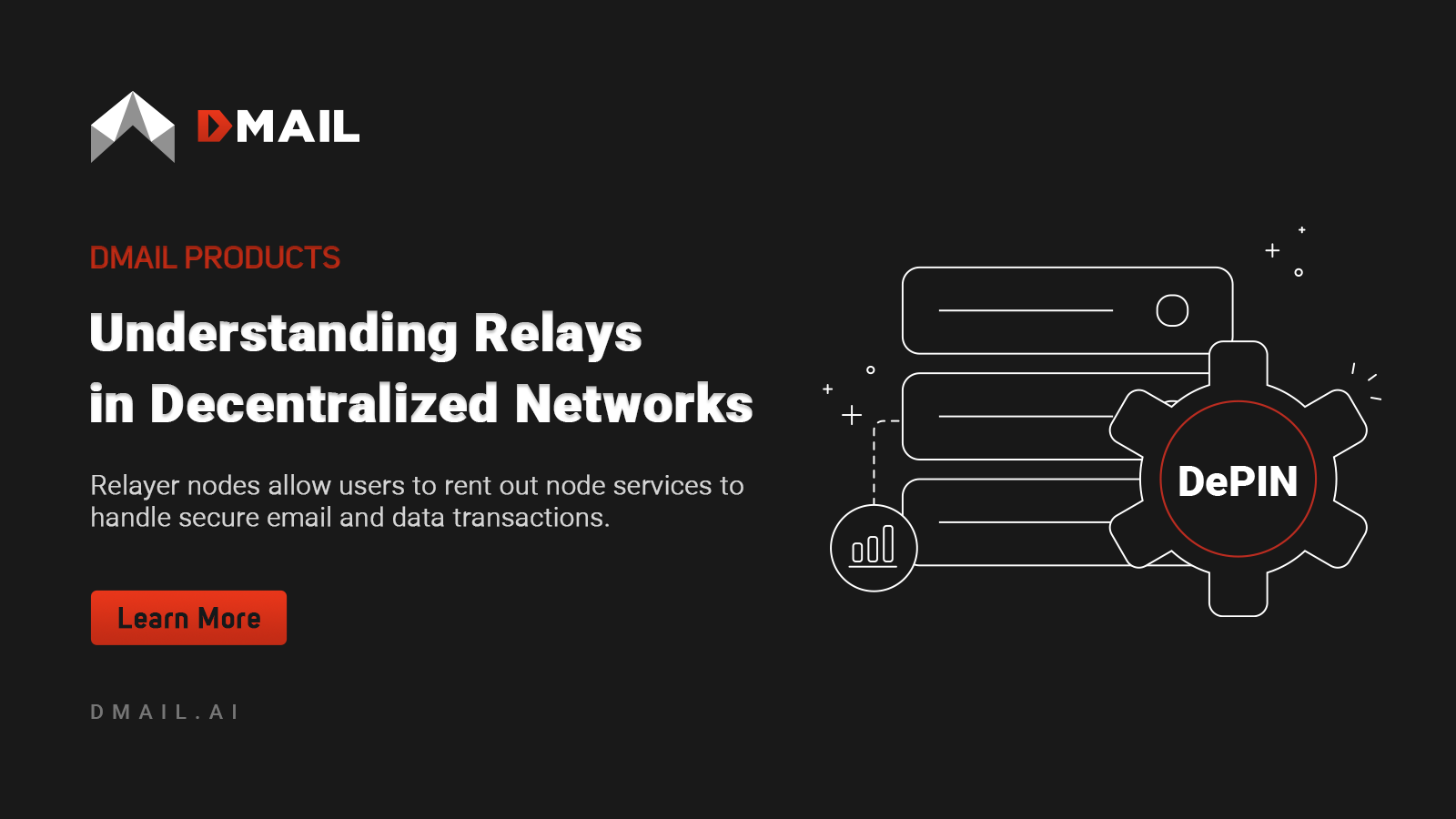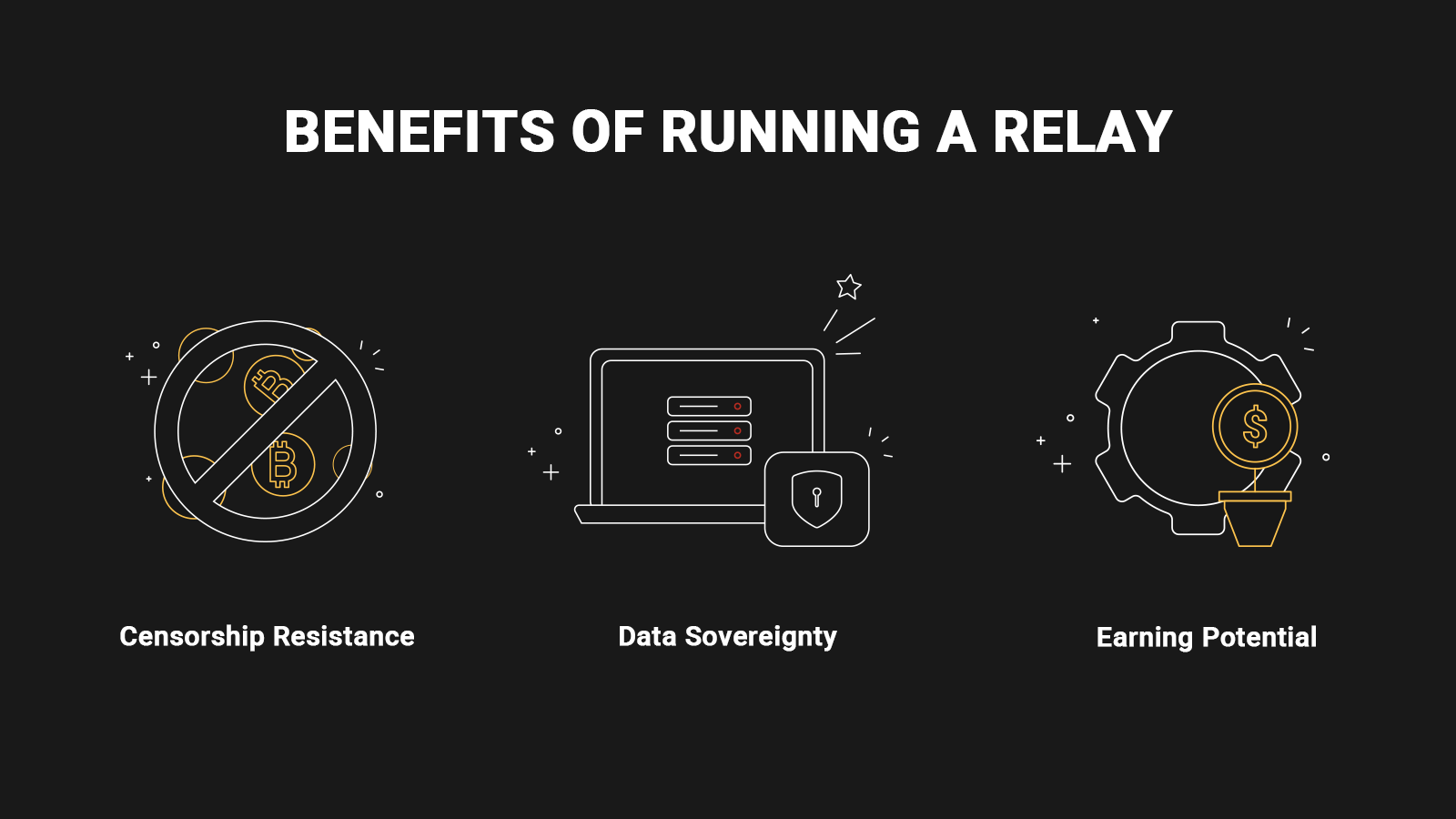Understanding Relays in Decentralized Networks: A Key to Efficient Communication
In Decentralized Physical Infrastructure Networks (DePIN), relayer nodes allow users to rent out node services to handle secure email and data transactions, and in return, they earn network rewards through staking

In the world of decentralized networks, relays are fundamental to enabling secure, peer-to-peer communication and data storage. For platforms like Nostr and Phala Network, relays aren't just intermediaries; they serve as the backbone of decentralized systems, ensuring the smooth flow of information, maintaining privacy, and preserving the integrity of the network. With the rise of decentralized protocols, Dmail's partnership with Phala Network introduces Trusted Execution Environment (TEE) technology to further secure decentralized email communication, marking a significant evolution in how relays are used.
In addition to this, Dmail is also partnered with IoTeX, a leading platform in the Decentralized Physical Infrastructure Networks (DePIN) space. IoTeX has received over $100 million USD in funding to expand its DePIN ecosystem, solidifying its position as a key player in decentralized infrastructure. Dmail operates a node on IoTeX, further integrating its system into the DePIN network, enhancing its capacity for secure, decentralized email communication across multiple blockchains.
What Are Relays?
In decentralized systems, relays function as backend servers that transmit and store data between nodes and clients. Unlike traditional centralized servers, relays operate independently, often run by community members to ensure a more censorship-resistant infrastructure. In the case of Nostr, relays store and broadcast messages across connected clients, providing redundancy. If one relay fails, the data can still be accessed through others, ensuring continuous service.
Relays in decentralized systems are agnostic to the content they handle—they don't need to understand the data they transmit. Their job is to facilitate communication between nodes and clients without interpreting or modifying the data, which keeps the system scalable and flexible.
Dmail and Phala Network: Securing Communication with TEE
Through its partnership with Phala Network, Dmail leverages TEE technology to ensure the privacy and security of its decentralized email service. Phala's relays not only transmit messages but also handle the encryption and decryption processes. When an email is sent, a cryptographic key is generated using Phala's TEE, which encrypts the email before it’s transmitted through the relay. The same key is required to decrypt the message upon receipt, adding a robust layer of security.
This system of relays and TEE ensures that emails are not just transmitted securely but also encrypted in a way that ensures privacy, even within a decentralized network. The relay doesn't need to interpret the contents, meaning that even if intercepted, the email data remains protected.
Dmail and IoTeX: Expanding DePIN with a Trusted Network
As part of its expansion into DePIN, Dmail operates a node on IoTeX, a blockchain that has secured over $100 million USD in funding to accelerate its DePIN efforts. This partnership allows Dmail to benefit from IoTeX's infrastructure, further enhancing its decentralized communication system. IoTeX's focus on decentralized physical infrastructure aligns with Dmail's goal of providing secure, private, and scalable communication services in the Web3 space. By running a node on IoTeX, Dmail strengthens its position in the rapidly growing DePIN ecosystem and adds a layer of trust and reliability to its network.
Why Relays Matter for Privacy and Security
In decentralized networks like IoTeX and Theta, relays also play a crucial role in maintaining security. They ensure that the data transmitted between nodes remains private and protected. This concept is essential in DePIN, where relayer nodes can be rented out to facilitate secure transactions, such as emails or data transfers, while rewarding users for staking tokens like $DMAIL.
Relays are key to maintaining privacy because they transmit data without needing access to its content. This minimizes the risk of data breaches and unauthorized access, adhering to the core principles of decentralization: trust distribution and the elimination of single points of failure.

Benefits of Running a Relay
For those with technical expertise, running a personal relay offers several advantages:
- Censorship Resistance: By running your own relay, you eliminate dependence on centralized entities that could censor or restrict access to your communications.
- Data Sovereignty: You control where your data is stored and how it's shared, ensuring greater privacy.
- Earning Potential: Platforms like Phala allow users to rent out nodes and stake tokens, earning rewards similar to a mining process by contributing to the network.
Conclusion
As decentralized networks continue to evolve, relays remain an indispensable component of their infrastructure. Whether securing communication, ensuring censorship resistance, or providing scalable solutions for data transmission, relays are pivotal to the decentralized internet. Dmail's collaboration with Phala Network takes this further by utilizing TEE technology to ensure secure and private email communication, while its partnership with IoTeX expands its presence in the DePIN ecosystem, adding another layer of trust and resilience to its operations.
Relays are not just intermediaries; they actively secure data, enhance privacy, and strengthen network resilience. As decentralized platforms expand, understanding and leveraging relays will be critical for more efficient and secure communication in the decentralized future.

Connect with Dmail: Website | Twitter | Discord | Github | Telegram


Comments ()